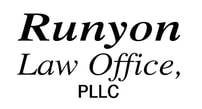Peering Over the Horizon
The one thing we didn't see any evidence of was a nursing home, probably because the youngsters just take care of their elders at home - like Americans once did. Some still do, of course, but with families all out working to make ends meet and with the explosion of senior care facilities, it's often easier for everyone to choose one of those alternatives. And if you need more care than the family can provide, you may have to start paying for care anyhow - usually at alarming rates.
Consequently, people keep asking how they can arrange their affairs so they can get the care they need, but not spend up everything they've worked a lifetime to accumulate. The knee-jerk solution is often to give it all away to the kids, so the parents look like they don't have anything and can qualify for Medicaid. I've talked about the shortcomings of that course before, so I won't repeat the disadvantages here.
But let's really look at the current state of affairs. True, a pretty nice nursing home can cost in excess of $100,000 per year. Yet the odds of needing one are in our favor. Even as long as we're living today, only about 40% of us will need a nursing home at all, and the chances of needing more than 3 years of care are only 25%. If my math skills haven't failed me, that means there's only a 1 in 10 chance of needing to pay more than 3 years of expenses.
So what does this mean? For one thing, it means we'd be crazy to give everything away - or make other inconvenient arrangements - just to avoid a 10% chance that our funds would be depleted by nursing home bills. Does it mean, though, that we'd be better off hedging our bets by paying the premiums for long-term care insurance? Maybe, but that involves a further calculus. Do we have a family history of Alzheimer's or some other debilitating condition that might afflict us, as well? Can we get LTC coverage at reasonable rates we can afford? The latter will depend on our ages now, our current health, and how much coverage we want to spring for. If we don't have any lurking family skeletons, though, maybe our risk of needing a nursing home will be even lower than 1 in 10, and perhaps our best insurance will be eating right and exercising. And some of us may even have old-fashioned families who say they want us to enrich their lives with tales of mail with stamps and phones on cords.
One way we might have our cake and eat it would be to forgo the insurance, but to pretend we're paying for it by contributing what we can afford to a rainy-day investment account. If we're still young enough to make IRA or 401K contributions, then ramping those up would be the way to go. If we never need the nursing care, we've buttressed our retirement savings or our grandkids' college funds, but if we do have to pay a nursing home, at least we'll have saved something extra toward those costs.
Clearly, if we knew what was over the horizon, we'd know exactly what to do. We certainly wouldn't bother with any insurance until just before we needed it. On the other hand, I guess we wouldn't waste time and money writing all those wills and trusts either - that would only improve on things for one of us!
Posted 3/2/2016 - Asset Protection
